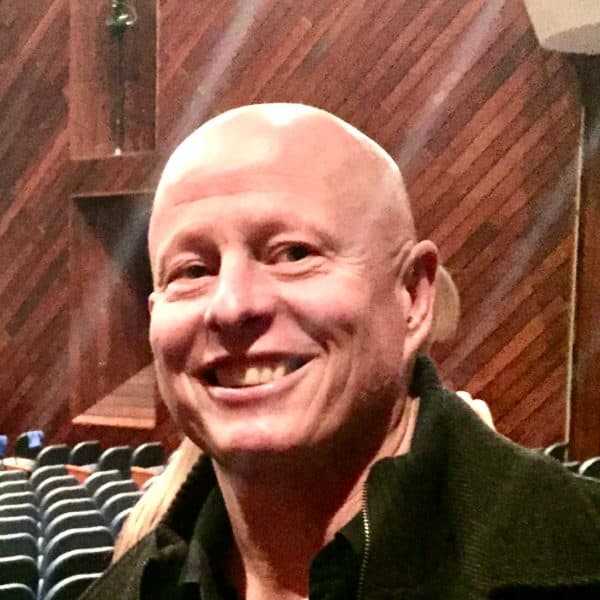Advertisement
Commentary
Why we should teach students about love

About 15 years ago, I began teaching my college students about love. I had been teaching first-year writing, a course with no set curriculum, and I began to focus on the literature of love, in part enamored by Diane Ackerman’s essays in her book “A Natural History of Love.”
Over time, I've come to see that love is one of the most — if not the most — studied, written about and consequential subjects of human history. Students are exceedingly eager to talk about love and sex, family bonds and religious love, so much that I developed a first-year seminar called "Modern Love." I added Erich Fromm’s “The Art of Loving” and C.S Lewis’ “The Four Loves.” There is also wisdom literature, the courtly poets, scripture, and much else to draw on.
Engaging content in a classroom is a fun thing. (Students love our discussion of how the clitoris is the one organ, in all of evolution, designed strictly for pleasure.) But love as class content has applications for happier lives. Erich Fromm argues cogently: The parable of Adam and Eve is not about shame of nakedness, but shame and guilt because of our separateness, our awareness of the distance from nature and from god and from each other. Understanding that we each come from a condition of separateness and loneliness, we can learn that the faculty of love — as opposed to object love — is one way to cope and connect.
Our experiences — the painful as well as the progressive — are rich material for young people and have a bearing on real life more valuable than writing three-page papers on etymology or theories of child development. As I say on my first day of the seminar, the single most important choice you will make in life is who you partner with, whether you marry or not.
As I say on my first day of the seminar, the single most important choice you will make in life is who you partner with ...
Coddling iPhones and reading only in bits and bytes, watching television and learning about sex through sexting and porn, today’s students are raised in the vocabulary of heteronormative lifestyles. So, I have them present on the various models of love and marriage, including those from other cultures and times: polyandry, arranged marriage, polygamy, group marriage, triads, same-sex relationships — we discuss them all. This fall, when a student told the class they had friends who were involved in a triad, we spoke about Fromm’s point that our focus on just one person limits and distorts our ability to love. Fromm suggests we cannot love if we do not feel love for all of mankind, including oneself.
For students of the digital age, coming out of a pandemic, this discussion on self-love is critical. Both Fromm (loosely) and Lewis (strictly) rely on "the ladder of love," which originates with Plato. The ladder climbs from affection and friendship (which includes the love of animals) through familial love to romantic love and finally, agape — literally, in awe of creation and god.
Advertisement
This past fall, we read Raymond Carver’s “What We Talk about When We Talk About Love.” Two couples are conversing before dinner. Terri, in a second marriage with Mel, a cardiologist, recounts her first marriage, where her husband physically and emotionally abused her and then killed himself (he told her) out of love. The characters debate whether this was, in fact, love. In their response to the story, a number of female students recounted that they, too, had been in abusive relationships and had escaped them. Today's collegiate generation may be better equipped to define and identify abuse. Is this a sign of progress or a Pyrrhic victory?
Many in the teaching profession will talk about love of being in the classroom and love of their students, but love as part of the curriculum has been problematic. Part of my inspiration came from a fledgling movement in 2008 that called for a pedagogy of love. This movement was informed partly by Paulo Freire’s great work, “Pedagogy of the Oppressed,” a book in which love is seen as critical to humanism and liberation. Worcester State University hosted a conference on the subject, and academics gathered to argue that a pedagogy of love would move the needle and restore the soul of higher education. Not much came of it. In higher education, the dialogue between faculty and administration — particularly in public education — is shaped by legitimate concerns about the needs of industry and civil society. What about love?
Today's collegiate generation may be better equipped to define and identify abuse, but is that a sign of progress or a Pyrrhic victory?
Still, I remember that conference: Many of the speakers stood and began their presentations with something along the lines of “I am the least likely person to call for teaching love.” Many of us questioned whether we were worthy enough to bring the argument forward. We were referring to our own histories of botched relationships, divorces, coal car after coal car on the freight train of human failures. But all the more pressing, then, to educate a generation of students and help them avoid similar laments.
We are living through extraordinary times. We have wandered into the electronic wilderness; digital technology has supplanted books. From online learning to TED Talks comes a familiar professorial lament: I can't compete with YouTube.
As we continue to change our education systems for the better, as we honestly confront our failings and challenges — from the great resignation to the discipline issues to safety issues — why not teach love as a faculty of the mind, as a subject worthy of study, as the basis of a happy and healthy society? There is an army of administrators, unionists, pessimists, fatalists and it’s-not-my-jobbers who will instantly fight such an idea, but extraordinary times require extraordinary measures. Besides, our students take to the subject of love like bees to honey. Teach love honestly, lead students to the literature of love, and you won’t be competing every day with YouTube or TikTok.
